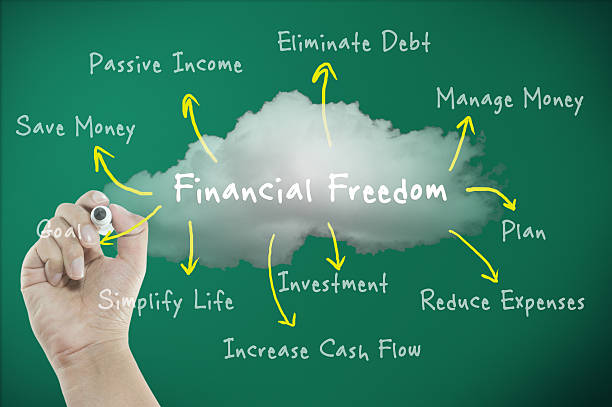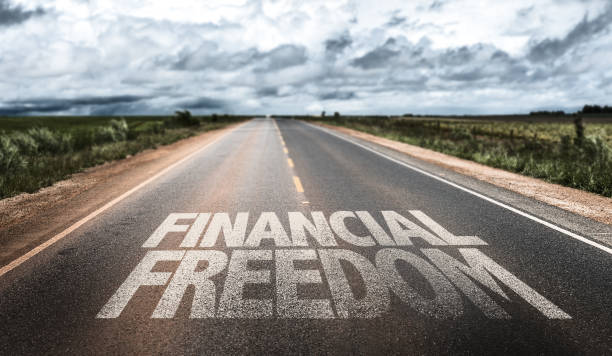What is financial freedom?

What financial freedom actually means to you depends on your financial situation and history. For some, financial freedom means having paid off all outstanding debts. For others, it means having enough money after paying the bills each month to save, grow retirement savings or simply afford a preferred lifestyle. For others still, it means being able to pursue interests and passions without having to worry about financial strain.

Financial freedom is sometimes used interchangeably with financial independence. In general, achieving financial freedom means living comfortably without money-related stress.

Achieving financial freedom in your 30s is an ambitious goal that requires discipline, strategic planning, and smart financial decisions.
It is hard to think of yourself as a financially independent person when you are still paying off debt, but it is something that you can do. If you want to achieve financial freedom, you first need to set goals—and the best way to do that is with a budget.

A budget will show you how much money is coming in and going out each month. It will also help you figure out how much debt you have and how much money you need to save to reduce it (or at least make it manageable). Once you figure that out, there are other strategies to save more money. From cutting back on spending habits to avoiding common investment mistakes or even changing jobs, these tips will guide your path toward financial independence.

Here are some tips to help you work towards financial independence:
1• Set Clear Goals: Define what financial independence means to you. Establish specific, measurable goals for your finances, such as retiring early, paying off debt, or achieving a certain level of passive income.
2• Create a Budget: Develop a detailed budget that outlines your income, expenses, and savings goals. Track your spending to identify areas where you can cut back and redirect funds towards your financial goals.
3• Live Below Your Means: Avoid lifestyle inflation by living below your means and resisting the urge to overspend. Focus on prioritizing your needs over wants and saving or investing the difference.
4• Pay Off Debt: Prioritize paying off high-interest debt such as credit cards and personal loans. Adopt a debt repayment strategy such as the debt snowball or debt avalanche method to accelerate your progress.
5• Build an Emergency Fund: Save enough money to cover 3-6 months’ worth of living expenses in an easily accessible emergency fund. This provides a financial safety net in case of unexpected expenses or job loss.
6• Improve your skills to earn more money: Improve your skills so you can get hired by the best companies in your industry. If you’re looking for a better job in your industry and have no experience, you can start as an intern or join training programs that will teach you how to do what they need done (and maybe even pay it forward!). You can also use these skills as side hustles to bring in more income.
Remember that achieving financial independence is a journey, and it’s essential to stay committed to your long-term goals while enjoying the benefits of financial freedom along the way. Constantly paying bills and covering expenses can be frustrating—especially if you aren’t left with much spending money afterward.
•Key takeaways•

Financial freedom can mean different things to different people. But generally it means reaching a level of financial comfort where you can worry less about money.
Defining goals and practicing responsible financial habits can help you work toward financial freedom.
Learning the basics about budgeting, spending, saving, investing, credit and debt might help along the way.





